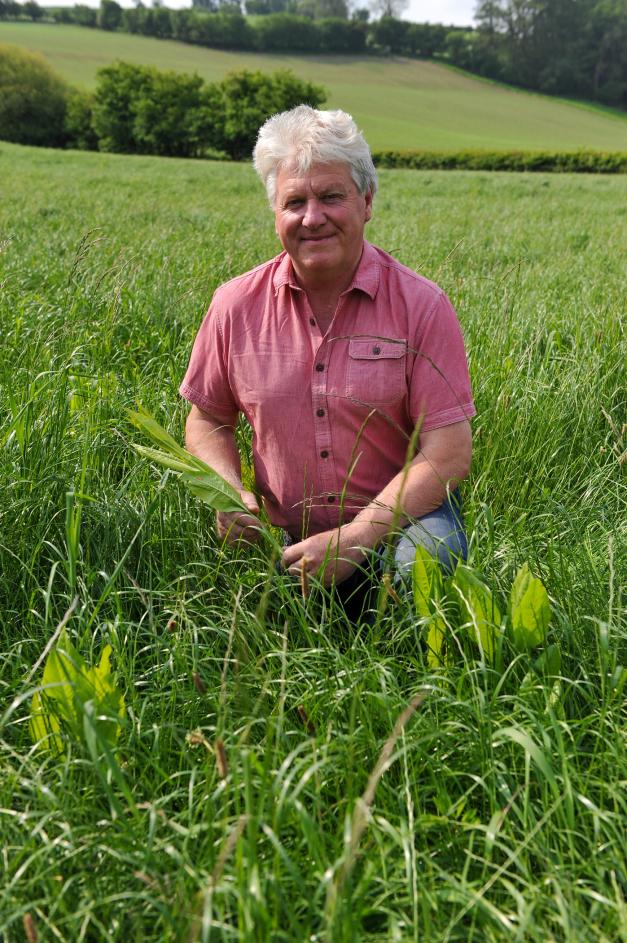
The project aims to identify the most effective ley composition for maximising lamb performance post weaning. The project will compare lamb daily liveweight gain (DLWG) and faecal egg counts (FEC) across three different ley types: multispecies leys, high sugar grass leys, and perennial ryegrass leys.
The leys were established last year on three fields which have been historically managed similarly. A cut of silage will be taken during the next few weeks and yields will be recorded. Groups of weaned lambs will then be introduced to the silage aftermaths and their performance will be monitored and recorded with EID technology. Data on lamb weight, FEC, silage yield, and other factors will be collected and analysed throughout the project.
"This is a great example of how farmers in Wales are embracing technology and sustainable practices," said Lisa Roberts, Farming Connect Red Meat Sector Manager.
"By investigating the impact of different leys on lamb performance, David and Will are not only aiming to improve their own farm's efficiency but also contribute valuable knowledge to the wider agricultural community."
A final project report will be available on the Farming Connect website later in the year with an on-farm event to showcase the results. Keep an eye on our website for further information and to find out more about the other try out fund projects -https://businesswales.gov.wales/farmingconnect/business/try-out-fund-bringing-your-idea-life.